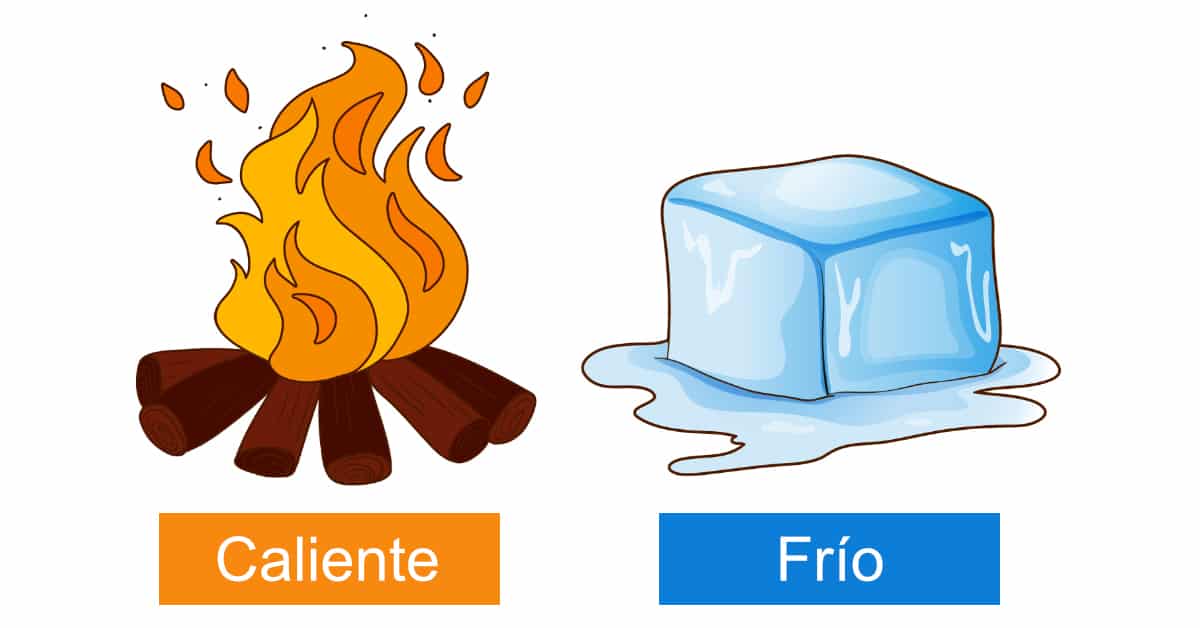Antonyms and synonyms are perfect to have substantial conversations. With them, you can talk about things, feelings and thoughts perfectly. But if you don’t have enough knowledge of different antonyms and synonyms, you could get lost in a conversation. Especially if you’re speaking in another language, like Spanish.
Having a conversation in a language you’re just learning is difficult. You might understand something that people are not actually saying. You could get confused when someone says hermoso (beautiful) or feo (ugly). And that would completely change the meaning of a sentence. Even worse, you could be the one talking and exchanging the words. So instead of saying someone is beautiful, you’d be saying they’re ugly. What a shame!
To avoid that, we put together a list with 30 important Spanish synonyms and antonyms. You never know when you’ll need them.
Differences Between Synonyms and Antonyms
Synonyms are words that mean the same thing. There can be words with many synonyms, that is with many other words that mean the same thing.
For example: hermoso, lindo, precioso, and bello are all synonyms of bonito (beautiful).
Antonyms are words that mean opposite things. So, synonyms have their respective antonyms. For example: feo (ugly) and horrible (horrible) are antonyms of bonito.
Of course, words might have different levels in their meanings. For example: hermoso implies even more beauty than bonito, though both mean “beautiful”.
Synonyms and Antonyms in Spanish
1. Feliz (Happy)
Synonym: contento
Antonym: triste (sad)
2. Pequeño (Small)
Synonym: chico/chiquito
Antonym: grande (big)
3. Inteligente (Intelligent)
Synonym: listo
Antonym: tonto (dumb)
4. Trabajador (Hardworking)
Synonym: aplicado
Antonym: flojo (lazy)
5. Hacer (To do / make)
Synonym: crear
Antonym: deshacer (to undo)
6. Limpio (Clean)
Synonym: pulcro
Antonym: sucio (dirty)
7. Limpiar (To clean)
Synonym: asear
Antonym: ensuciar (to make something / someone dirty / to make a mess)
8. Encender (To turn on / Switch on)
Synonym: prender
Antonym: apagar (to turn off)
9. Amor (Love)
Synonym: cariño
Antonym: odio (hate)
10. Amar (To love)
Synonym: querer
Antonym: odiar (to hate)
11. Difícil (Difficult)
Synonym: complicado
Antonym: fácil (easy)
12. Flaco (Thin)
Synonym: delgado
Antonym: gordo (fat)
13. Caro (Expensive)
Synonym: costoso
Antonym: barato (cheap)
14. Ruido (Noise)
Synonym: escándalo
Antonym: silencio (silence)
15. Saludable (Healthy)
Synonym: sano
Antonym: enfermo (sick)
16. Rápido (Fast)
Synonym: veloz
Antonym: lento (slow)
17. Agradable (Nice)
Synonym: simpático
Antonym: desagradable (unpleasant)
18. Obediente (Obedient)
Synonym: disciplinado
Antonym: desobediente (disobedient)
19. Levantar (To pick up)
Synonym: recoger
Antonym: tirar (to drop)
20. Claro (Light)
Synonym: luminoso
Antonym: oscuro (obscure)
21. Poco (Little bit)
Synonym: escaso
Antonym: mucho (a lot)
22. Cuidar (To take care of)
Synonym: proteger
Antonym: descuidar (to neglect)
23. Distraído (A distracted person)
Synonym: despistado
Antonym: atento (attentive)
24. Gustar (To like)
Synonym: agradar
Antonym: disgustar (to disgust)
25. Ligero (Light)
Synonym: liviano
Antonym: pesado (heavy)
26. Tranquilo (Calmado)
Synonym: calmado
Antonym: intranquilo (uneasy)
27. Mojado (Wet)
Synonym: húmedo
Antonym: seco (dry)
28. Romper (To break)
Synonym: quebrar
Antonym: arreglar (to fix)
29. Normal (Normal)
Synonym: común
Antonym: raro (weird)
30. Valiente (Brave)
Synonym: intrépido
Antonym: cobarde (coward)
Tips to Learn How to Use Spanish Synonyms and Antonyms
Synonyms and antonyms will improve your vocabulary and your speaking abilities since you’ll sound more native by using them. But you shouldn’t just memorize this list of words. There are better and different ways of actually learning how to use synonyms and antonyms.
Immersion
To learn any kind of vocabulary the best way is through immersion. That means surrounding yourself with a Spanish environment, so you can absorb words and phrases easily. You can listen to music in Spanish, read some books, or watch international Netflix shows. Doing these everyday activities will help you learn while having fun. These things will show you real-life examples of what things are synonyms and antonyms and how to use them.
Speak
We know that trying to speak in another language can be terrifying, but it’s the only way you’ll get fluent. When you are with your language classes’ friends, you can try to have a conversation in your target language. Or if you have international friends, you can do the same. Also, try to participate as much as possible in your classes, don’t stay quiet. And get in a conversation club in your target language. It’ll make you speak even if you’re scared of doing it. It’s okay to make mistakes; you’ll learn from them.
Use in Everyday Activities
Try to use the synonyms and antonyms that we just taught in your everyday activities. For example: if you’re doing something that makes you happy, you can say estoy feliz (I’m happy). If you have a distracted kid, you can tell him: siempre estás distraído, debes ser más atento (you’re always distracted, you must be more attentive). Or, you can congratulate yourself for being brave for trying to speak in Spanish: soy muy valiente. You can use them while talking to yourself or with someone else.
Explore more Vocabulary
You can read our blog about homophones in Spanish to gain more useful vocabulary. But if you want to improve your Spanish skills even more, you can take TruFluency’s online customized classes.
Our native Spanish instructors will help you gain fluency through interesting topics and classes. We focus on making you speak so you can learn in an effective way. Save 20% off your first month of classes with code TF20!





